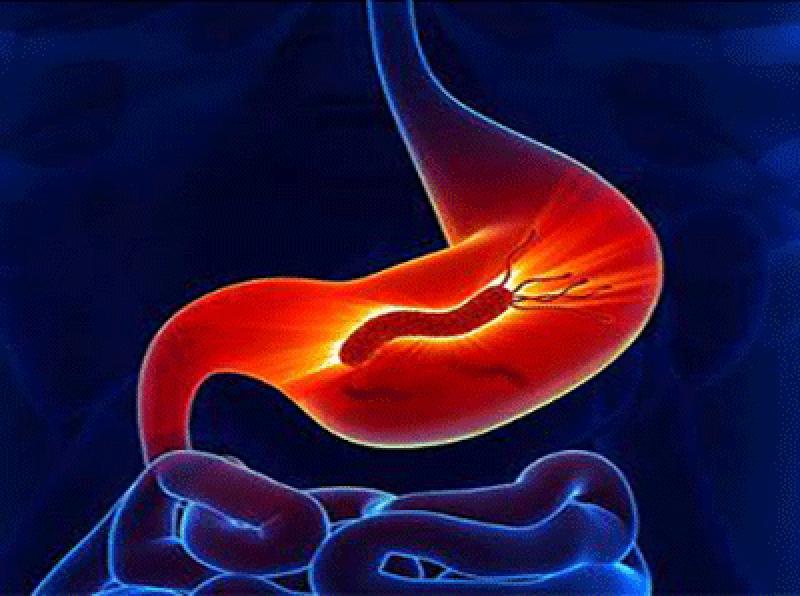Helicobacter pylori (H. pylori) infection occurs when a type of bacteria called Helicobacter pylori (H. pylori) infects your stomach. This usually happens during childhood. A common cause of peptic ulcers, H. pylori infection may be present in more than half the people in the world.
Most people don’t realize they have H. pylori infection, because they never get sick from it. If you develop signs and symptoms of a peptic ulcer, your doctor will probably test you for H. pylori infection. If you have H. pylori infection, it can be treated with antibiotics.
Symptoms
Most people with H. pylori infection will never have any signs or symptoms. It’s not clear why this is, but some people may be born with more resistance to the harmful effects of H. pylori.
When signs or symptoms do occur with H. pylori infection, they may include:
• An ache or burning pain in your abdomen
• Abdominal pain that’s worse when your stomach is empty
• Nausea
• Loss of appetite
• Frequent burping
• Bloating
• Unintentional weight loss
Tests and procedures used to determine whether you have an H. pylori infection include:
• Blood test: Analysis of a blood sample may reveal evidence of an active or previous H. pylori infection in your body. However, breath and stool tests are better at detecting active H. pylori infections than is a blood test.
• Breath test: During a breath test, you swallow a pill, liquid or pudding that contains tagged carbon molecules. If you have an H. pylori infection, carbon is released when the solution is broken down in your stomach. Your body absorbs the carbon and expels it when you exhale. You exhale into a bag, and your doctor uses a special device to detect the carbon molecules. Acid-suppressing drugs known as proton pump inhibitors (PPIs), bismuth subsalicylate (Pepto-Bismol) and antibiotics can interfere with the accuracy of this test. Your doctor will ask you to stop taking those medications for a week or two weeks before you have the test. This test is available for adults and children.
• Stool test: Laboratory test called a stool antigen test looks for foreign proteins (antigens) associated with H. pylori infection in your stool. As with the breath test, PPIs and bismuth subsalicylate can affect the results of this test, so your doctor will ask you to stop taking them for two weeks before the test.
• Scope test: You’ll be sedated for this test, known as an upper endoscopy exam. During the exam, your doctor threads a long flexible tube equipped with a tiny camera (endoscope) down your throat and esophagus and into your stomach and duodenum. This instrument allows your doctor to view any irregularities in your upper digestive tract and remove tissue samples (biopsy). These samples are analyzed for H. pylori infection. This test isn’t generally recommended solely to diagnose an H. pylori infection because it’s more invasive than a breath or stool test, but it may be used to diagnose H. pylori ulcers or if it’s needed to rule out other digestive conditions.
Treatment
H. pylori infections are usually treated with at least two different antibiotics at once, to help prevent the bacteria from developing a resistance to one particular antibiotic. Your doctor also will prescribe or recommend an acid-suppressing drug, to help your stomach lining heal.
